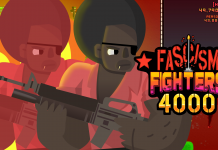At one point or another we all have a tendency to get sick of it. “The heroes ALWAYS win.” It’s a common saying for a reason. One I heard often as a kid from the older teens while I complacently watched Power Rangers. When we sit down to watch anime, read a book, or play a video game, we often crave that twist where the hero doesn’t win. But for what purpose? I think it’s easy to fall into the memetic idea that “darker = deeper”. While there are many sex jokes in those two quotation marks, you’ll be pleased to know I won’t acknowledge any of them… except for this sentence. Regardless, I’d like to talk about this phenomenon for a moment before this manga recommendation.
Why is it that the “Heroes always win”? This is a matter of how we, as humans, contextualize ourselves in art. “Contextualizing yourself in art” is a fancy five dollar phrase that more or less means to find your place in the world through art. For example, lets talk about a story where an everyday comic book nerd is dropped into the Marvel Universe, Gwenpool. Which as given a lovely review on Uzerfriendly in our BEGINNERS GUIDE TO COMICS series! Links Links! Shill Shill! Watch Watch!
Now assuming you watched that video like a good little viewer, allow me to explain why Gwenpool as character works. The Unbelievable Gwenpool is an incredibly relatable, hyperactive, stupid fangirl who is morally questionable in character. She’s the type of girl who would write incredibly cringe worthy fanfiction found on the web. Her dialogue is written exactly like cringe-worthy fanfic writers. Gwenpool will constantly interrupt the flow of the narrative with narration, make reference to story tropes, and lean on the 4th Wall.
Impressively, the writer explains away her addressing the audience as her mentally narrating to herself which let’s her lean on the 4th Wall without actually breaking it. As a story telling mechanic it moves the plot along, doesn’t break immersion, AND characterizes Gwen as the psycho that she is. It was stunning to see as a story telling mechanic.
She also kills people… a lot. Not in the usual, “action hero” way mind you; she thinks it’s innocent because she’s in a comic book. There came a subtle turning point in the comic after killing some bank robbers. She’s rightfully arrested (post dropping a grenade in the bank that is) and placed into the cop car with one of the robbers nephews. After informing Gwenpool she murdered his uncle she says, “Ah! Ooh. I don’t know how to feel about that. He was a bad guy… right?”
YOU DON’T KNOW HOW TO HANDLE GUNNING DOWN AND BLOWING UP PEOPLE HUH? YOU DON’T SAY.
The line caused me to literally say what the f*** out loud as I read it. It was also then I was convinced Gwenpool was a great comic. So to no longer belabor the point. Why Gwenpool works is because she’s a brilliant representation of us as fans. Of course many of us have grown beyond this stage of fandom but we can’t deny we were there at one point. Maybe daydreaming ourselves as the edgy new comer that takes out the grunts in a single panel transition. Or maybe as the go-lucky kicker of ass standing toe to toe with Batman. We can relate to Gwenpool because her character is inherently understands this embarrassing part of our lives. This is why we buy into the “trying to do the right thing” of her persona instead of condemning the “LITERALLY JUST KILLED A DUDE’S UNCLE AND HAS NO EMPATHY” part.
This is why we read stories; to find ourselves in the story. Human history is one of immersible triumph. After all, we came up from our faces in mud to, building castles of stone, to build towers of steel. With enough soul crushing misery in the world, we don’t want to feel bad about life at the end of a work of art. Of course tragedy is a genre in literature for a reason, but even then we can take something away from it. The failures of the characters to avoid and life lessons for the future. Recently after completing the Android novella, Monster Slayer, written by Daniel Lovat Clark, he sat down for an interview with the Terminal 7 podcast. In this podcast, Daniel mentions that his editor had him rewrite the ending of the novel because it was too bleak. The audience would have walked away from the book feeling bad. And after finishing the book… uh yeaaaaa. I’m glad the editor caught that. Darkness for the sake of cruelty just does not bring the levity viewers want to see. This obscure reference is already too esoteric for literally all of my readers though. If you’d like more context into this I will leave a link. It’s a good episode particularly for writers.
ALRIGHT. We be pages into this post. Why did I take the time explain the idea why we want heroes to win at the end in such a roundabout manner? It’s because if you read the damn subtitle I feel it’s this element of wanting to triumph that gives Wolfsmund its unique appeal. When the author sat down he had two choices. He could have written a story where each of our heroes and heroins make it to the other side with a burst of passion. Instead he went, “Or we tear him to shreds until he leaves as we laugh maniacally at his humiliation.”
Today on WHY AREN’T YOU READING… Wolfsmund.
So at a time long ago (5 months ago), at a terminal in a different dimension (my computer). I read the first manga volume of Wolfsmund and left this amusing first impression.
So I’m finally working my way through all the Wolfsmund manga that I blind bought awhile ago. So here’s some First Impressions:
Initial opinion wasn’t favorable. It starts by following some Knight and his dumb princess. So obviously we have to go through the edgy process to disguise her that was to be expected. Their dialogue was particularly lame to me…
And then Wolfram showed up.
“And Stanley was happy.”
While art evolution is slightly noticeable over the volume by itself, I’d be lying if I pretended not to be mildly annoyed at the occasional lack of backgrounds. That’s a relatively petty complaint tho. Lack of background art is rather common for manga given scheduling and such (also this IS just the first volume, I’ll be lenient). What made it stand out however was just how flat some of the image compositions were.
I personally prefer more stylized art… but given the gritty drab atmosphere of the story this stylistic choice does make sense. DEM FIGHT SCENES THO. Mitsuhisa Kuji has some pretty great character designs and characters look fantastic in combat. I know the manga was praised on its realistic fight scenes but I was rather blown away at first look.
The actual drawn backgrounds do leave a bit to be desired. And when someone mentioned gore in the manga I was disappointed that I didn’t see someones guts come out like one of Gut’s usual afternoons.
But then I looked at Wolfram’s smile again.
“And Stanley was happy.”
The last story revealed something of a pattern. The author wanted to build up Wolfram as this almost legendary being while showing him off as little as possible. And damn, it works pretty well. He achieves this by diverting the story away from Wolfram entirely. Rather the stories follow the motives and characters of the people trying to get past the gate, Wolfsmund. Taking the time to get you invested in them, showing their feats of pure awesome, making you hope and think that they’ll get across to the other side alive!
AND THEN WOLFRAM SHOWS UP.
AND STANLEY GETS HYPED.
Recommended reading. Check it out.
Based on the reddit comments and my own impression of the manga, it can be said the series might leave a less than inviting package. It implies that what we are going to be reading is largely going to be composed two groups of people attempting to get past the so-called Wolf’s Maw and failing at the hand of Wolfram. Which that point is correct; there’s going to be a fair amount of that. One of the problems with the villain winning at the end of the day is that it often leads to a feeling of stagnation. The villain still sits up top on his throne and the problem is left unresolved. The hero didn’t win, so when does he? The question still remains, “Why would I want to read this manga?” Well, put in a word, the answer is “catharsis”.
Wolfsmund falls into the genre of Historical Tragedy. The story has two elements at play; the retelling of the revolution started by the legendary William Tell and main obstacle stopping that revolution, the barrier station Wolfsmund. The former of which is more of a background detail while we the reader watch the tragedies play out at the hand of the bailiff, Wolfsram. So I only feel it best to divide this recommendation into halves. Let’s call them The Maw and The Revolution.
The Maw: Why the need for tragedy
In the early 14th century a Duke named Leopold, our resident princely pretty boy, is leading the oppression of Austria. It is described as he has captured three cantons and is working to snuff out any resistance forces. To ensure that rebel forces can’t just stroll into the joint and cock up his tyrannical family, Leopold sets up best boy Wolfram to keep watch over the barrier station Wolfsmund. In the mean time Duke Leopold goes on quell the rebellion as you do.
With that bit of historical context out of our mouths like the last bits of a saltine cracker avenging its crunchy comrades, let’s move along to the station and it’s bailiff. In particular, BEST BOY HYPE MAN WOLFRAM BABY! It was dangerous gambit on behalf of the writer to cast the cruelest sonuvabitch as the initial protagonist of our story, but it was one of the smarter choices made for the story. Now believe me when I say Wolfsmund is not a manga for the squeamish. There’s gore-a-plenty and scenes that really seem like plan immoral cruelty for the sake of it. When a traveling performer and her daughter attempt to pass through the station and Wolfram decides to test them by checking there uh… yeah. With metal tongs. And permanently scars the daughter internally just as a test for the mother.
Yes indeed Vertical. Here be adult stuff. *cringe intensifies*
"Here be adult stuff."
It's okay Vertical. I'm embarrassed for you. pic.twitter.com/hduG1Cnl3M— CherryboyWriter (@AddictedApex) January 15, 2017
Wolfram being the actual spawn of the devil, #Noreally #Theyactuallywentthere, is utterly unapologetic in what is a wanton love of torture and crushing the hope of anyone that even looks at him funny. And it’s a riot of a time all the time. He’s by far and away the most fun character in the manga and this is the manga’s greatest downfall. As I had mentioned in my above post, Wolfram really does make the manga… meaning that any lack of Wolfram is going to be something of a dull time. You could say that I didn’t particularly enjoy opening tales of the knight and the princess, or the sexy female assassin, or the estranged lovers forced to flee as they came of as cliches. Where as Wolfram is our final boss that gives the murder treatment before going back for the afternoon’s tea, which is a hell of a lot more interesting.
Call this a flaw of story telling if you wish, I won’t stop you, but it’s in recognizing the clichéd stories that give this manga it’s flavor. I should mention that the two character stories that we are given do hold enough story telling to keep you interested enough. They aren’t give presented half heatedly. But at the same time it’s that in recognizing that these are simple people attempting to just live there lives, and having that cut short by entering the Wolf’s Maw, that builds up Wolfram and the Wolfsmund as true threats. In a sense it reminds me of the first episode of Cowboy Bebop. Where the tragedy of the two lovers isn’t interesting as its own story per se, however it remains a tragedy none the less. It casts a bleak feeling over the story once the initial hype of Wolfram’s sexy smiles stops burning your loins.
This relatability of being just a witness to tragedies and wanting a hero to come out on top would be why my 1,000 word introduction felt warranted. Aside from my desire to gush about my new waifu, Gwenpool that is. After a while, you just want someone to put a stop to it. Time after time, our hopes get dashed and desire for payback grows in tandem with the people of the mountain. The express reason for all the torture and death that takes place at the Wolfsmund is to act as a window by which we can view the cruelty and oppression endured by the oppressed. It was to get us to empathize with plight of the revolution investing us in the story of Walter Tell, Wilhelm Tell’s son.
This would bring us to the second half of our recommendation The Revolution.
The Revolution: The EMOTIONAL Payoff (Minor spoilers)
After two full volumes of Wolfram’s torment, we jump into a LARGE scale siege of the station Wolfsmund. I want to highlight the emphasis on just how big the siege of Wolfsmund is. Wolfsmund is an eight volume series. The siege, as in the actual start, battle, and conclusion, takes up FOUR of these EIGHT volumes. By far and away, this was the high point of the manga. And considering that this high point is half the story, that’s pretty sweet value-wise. The siege is a detailed, action packed battle that should, without a doubt, be read by writers looking to understand the internal defense systems in fortresses. For the rest of you readers, just enjoy this rollercoaster. Dedicating half of a series to just one siege could only feel warranted by establishing Wolfsmund as an enormous hurdle in the previous volumes might.
However it’s here that weakness of the manga really shows. That being a lack of a strong character outside of Wolfram. Characters are our connectors to the story. Without them it’s difficult to empathize with anything going on because at that point it’s just a fictional history lesson. So without strong well-developed characters acting as our lens to zero in, the story is going to come of as rather dry. If I had to think of an analogy for the character dynamics story, Wolfram is the tough meat steak while the other characters to be the water to wash it down.
Actually, the more I think about it, that analogy is rather fitting for the plot but I’ll leave it there for now. Wolfram being packed with zesty man flavor his screen time is always worth wild. While the rest of the cast just sort of “functions”. They work in being mildly interesting, advancing the plot as you savor the Wolfram juic- I mean scenes, but as far as compelling and interesting your mileage may vary. Strong character personalities are what draw me in which are lacking sorely from the cast. On the other hand the characters may be saved for you based on how invested in the struggles against the oppressive tyranny of the government.
In that case more power to ya! In my case it wasn’t enough to save me entirely. To be frank my readers the final volumes of Wolfsmund that resolve the revolution plot could have been reenacted by two opposing factions of gingerbread men. Give them candycane horses, replace the boiling oil with warm milk… actually hang on moment. *One copyrighted idea later* Alright back and ready to boogie. Actually I just wanna play Civilization 5 for the first time so let me wrap this up already.
So… WHY AREN’T YOU READING Wolfsmund?
Likely because it’s an eh trail mix bag. On one hand we have beautiful amounts of Wolfsram, visceral and realistic action, innocence ripping torture to go around as our chocolate candy/salted raisin goodness. However the other characters and overall plot act as our peanuts and whatever those other small crunchy things in the mix are. They’re vital to the core context of the manga, as we can’t just have Wolfram running rampant with sexy chocolate self, and create for a healthy snack. But at best we tolerate peanuts if there aren’t honey coated we just munch them to get them out of our mouth because goddammit I payed 5 bucks for this trail mix and I’m on a budget.
There’s also the possibility that you, reader, are a pansy. That can’t handle your seinen manga with copious amount of detailed torture and gore. I mean, hey, I get it. I didn’t like horror movies when I was nine because Scooby Doo and the Witch’s Ghost recurring nightmares about three years. We all have our weaknesses.
However for the its compact length of just eight volumes, seven of which are available for legal purchase from Vertical (the eight volume on the way), its brilliant portal of medieval combat and siege tactics, and utterly unforgiving tone I really can recommend Wolfsmund.
It was maw that I’d certainly revisit someday.



